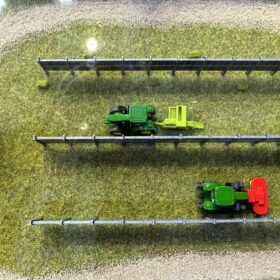Mahindra Group and Ford Motor Company will jointly develop a small electric vehicle (EV) for India and emerging markets, the former announced on March 22, as part of its strategic collaboration with the automobile giant.
The five MOUs, including other projects like connected vehicle solutions that have been signed, are non-binding, and mark the progress made by the two companies since announcing their alliance in September 2017.
The companies have agreed to evaluate the co-development of a compact sport-utility vehicle (SUV) and EV, along with sharing powertrain portfolios, including the supply of Mahindra powertrains to extend Ford’s product range.
Jim Farley, Ford Executive Vice President and President of Global Markets, cited the future needs of utility vehicles and electrification as the core of this collaboration.
Teams from both companies will continue to collaborate and work together, for a period of up to three years, to develop further avenues of strategic cooperation such as extending support for Mahindra in global emerging markets, including Ford’s manufacturing and distribution network, and to collaborate to address future mobility needs.
The spirit of ingenuity has driven Mahindra to be among the few global companies pioneering the development of clean and affordable technology. Mahindra is the only player with a portfolio of EVs commercially available in India. Expanding its global presence, Mahindra owns a majority stake in Ssangyong Motor Company in Korea, and has forayed into the shared mobility space with investments in ride-sharing platforms in the U.S. The firm is also developing products like the GenZe – the world’s first electric-connected scooter.
Collaboration with LG Chem
Mahindra and South Korea’s largest battery manufacturer LG Chem have collaborated on the development of advanced lithium-ion (Li-ion) battery technology. The deal was signed in February this year.
LG Chem will develop a unique cell exclusively for Indian applicationa and will also supply li-ion cells based on NMC (nickel-manganese-cobalt) chemistry with high energy density. These cells will be deployed in the Mahindra and SsangYong range of EVs.
LG Chem will also design the Li-ion battery modules for Mahindra Electric, which in turn will create battery packs for the Mahindra Group, and other customers.
Hemant Sikka, President and Chief Purchasing Officer, Mahindra & Mahindra Ltd, mentioned that EV is taking the country by storm and, therefore, this association will give Mahindra the requisite access to advanced battery technology and enable it to become competitive in this emerging sector.
In keeping with the investment plan announced by Mahindra last year, a battery module plant is also under development. The plant will have a capacity of half a million battery modules per annum and will also house a battery module pack line. The entire facility for both module and packs is expected to go into production in the last quarter of the financial year 2020.
This content is protected by copyright and may not be reused. If you want to cooperate with us and would like to reuse some of our content, please contact: editors@pv-magazine.com.








1 comment
By submitting this form you agree to pv magazine using your data for the purposes of publishing your comment.
Your personal data will only be disclosed or otherwise transmitted to third parties for the purposes of spam filtering or if this is necessary for technical maintenance of the website. Any other transfer to third parties will not take place unless this is justified on the basis of applicable data protection regulations or if pv magazine is legally obliged to do so.
You may revoke this consent at any time with effect for the future, in which case your personal data will be deleted immediately. Otherwise, your data will be deleted if pv magazine has processed your request or the purpose of data storage is fulfilled.
Further information on data privacy can be found in our Data Protection Policy.